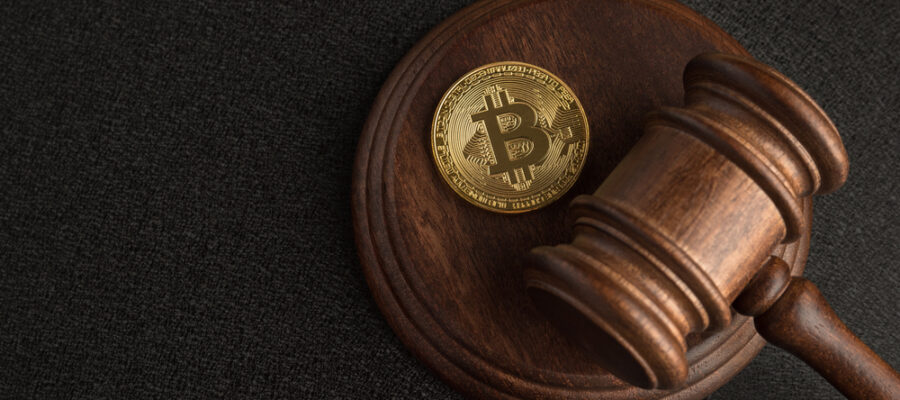Bitcoin a ‘Commodity’?
The lead cryptocurrency i.e. Bitcoin was recently actively debated and discussed by one of the prominent lawmakers in the US.
Senator John Boozman, a member of the Agriculture, Nutrition, and Forestry Committee of the US Senate talked about Bitcoin in detail. While discussing Bitcoin, the lawmaker also shed some light on the crypto regulation.
A Senate hearing on ‘FTX collapse and the role of Congress was held in which Senator Boozman gave his viewpoint.
Senator Boozman argued that there is no question about the fact that Bitcoin and all such cryptocurrencies are ‘commodities’.
He said that even the US Federal Courts along with the Securities & Exchange Commission (SEC) have also classified Bitcoin as a ‘commodity’.
He pointed out that there is no room for doubts that Bitcoin or cryptocurrencies are something else except for being ‘commodities’.
As regards FTX, the Senator pointed out that FTX going bankrupt is no less than a surprise to him. He then referred to public statements to suggest that FTX ignored risk management and mishandled funds owned by customers.
Senator Boozman then argued that such practices lead to the financial crisis, particularly in the US financial markets.
CFTC Is the Sole Regulator of Digital Currencies
Senator Boozman then went on to discuss crypto regulation while highlighting the exclusive role of the Commodity Futures Trading Commission (CFTC).
He argued that since cryptocurrencies are ‘commodities’, hence, they fall within the exclusive domain and regulatory oversight of CFTC only. He further argued that by default CFTC is the sole regulator of commodities in the US.
He emphasized that whether an exchange offers trade of wheat or digital currencies, they cannot skip the CFTC’s regulatory oversight.
Boozman claimed that there is no question of choice for such exchanges otherwise consumers would be left at their whims and fancy.
He argued further that it is not for exchanges to decide whether to be regulated or not. “CFTC is duly empowered to regulate them anyway”, emphasized Senator Boozman.
Consumer Protection Top Most Priority
As regards crypto consumers, Senator Boozman said CFTC being the commodity regulator has the responsibility of ensuring consumer protection.
He pointed out that CFTC has been vigilant in performing its duties towards consumer protection by issuing enforcement actions against mal-practitioners.
He added that he has full faith in CFTC and never doubted CFTC’s regulatory oversight over the US commodity markets. He hoped that CFTC would continue to play its due role even in the cryptocurrency markets of the US.
DCCPA Law
Three months ago, Senator Boozman along with several other US lawmakers introduced the law called the “Digital Commodities Protection Act (DCCPA)”.
The law aimed at empowering the US commodity regulator while granting CFTC exclusive domain and regulatory oversight over digital commodities.
On the subject of digital currencies, the US Senate has already considered two separate bills.
In the two bills under consideration, the proposals insist that CFTC should be made the exclusive regulator for the crypto industry.
SEC’s Stance over Bitcoin
SEC long recognizes Bitcoin as a ‘commodity’ and this classification of Bitcoin has further been endorsed by Chairman SEC, Gary Gensler.
However, SEC treats other cryptocurrencies as ‘securities’, which has been debated by many.
For instance, Ripple (XRP) is a cryptocurrency whose whitepaper is more or less the same as that of Bitcoin. However, SEC regards XRP as ‘security’ and denies it to be a ‘commodity’.
Consequently, litigation is going on between SEC and XRP’s issuer which is pending adjudication. Since December 2020, the US SEC has continued fighting with Ripple over the nature of its token “XRP”.
Despite the claims made by Ripple that the former chair of the SEC did not classify XRP as a security, the US SEC has claimed otherwise.
Therefore, both sides have been at war with each other for the past couple of years to prove their point. The people familiar with the matter seem to be siding with Ripple on this as they see the tech company winning the case.
All trademarks, logos, and images displayed on this site belong to their respective owners and have been utilized under the Fair Use Act. The materials on this site should not be interpreted as financial advice. When we incorporate content from other sites, we ensure each author receives proper attribution by providing a link to the original content. This site might maintain financial affiliations with a selection of the brands and firms mentioned herein. As a result, we may receive compensation if our readers opt to click on these links within our content and subsequently register for the products or services on offer. However, we neither represent nor endorse these services, brands, or companies. Therefore, any disputes that may arise with the mentioned brands or companies need to be directly addressed with the respective parties involved. We urge our readers to exercise their own judgement when clicking on links within our content and ultimately signing up for any products or services. The responsibility lies solely with them. Please read our full disclaimer and terms of use policy here.

